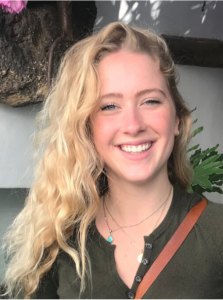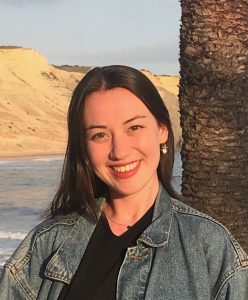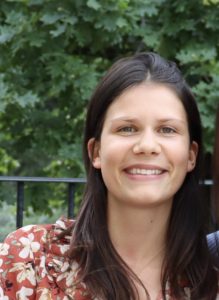Econogy: the coronavirus, good news for the planet
In May 2020, three young people launched a research group on the positive consequences of the coronavirus on economic development, called ECONOGY. Interview with two of them, Anaïs Julin and Maëlle Waché.
A project for the future

Maëlle Waché, co-founder of Econogy
Anaïs, Blanche, and Maëlle are students, graduated from Cambridge or King’s College in Economics. Before starting their masters in France, they decided to get involved in international environmental actions. Bad luck, the coronavirus upset their plans. “We thought, why not positively use this situation, and make it our driving force”. That’s how Econogy was born.
Their approach is simple: build a research file enriched with concrete experiences. Then, provide expertise to the actors of change, in both the public and private sectors.
The UN Caribbean-Latin America, as well as associations such as Batik in Vietnam, French regions and cities, certain companies, and individuals who want to make their contribution, all, believe in and support the project.
Youth in motion

Anaïs Julin, co-founder of Econogy
Above all, the members of Econogy want “to work for others and to contribute at our level to a better world” (Maëlle). This would change the image of youth, who would live in the present moment without worrying about the future. One of the aims of the project is to raise awareness among young people, in schools for example, for they willl be the main actors of tomorrow.
“We would like to be bearers of hope, to generate a movement supported by the youngest, who have been hit hard during the COVID crisis, to show initiatives that are heading in the right direction. In my opinion, this is the role of youth today. ”(Anaïs)

Blanche Comolli, co-founder of Econogy
“All negative things at first glance can detect a positive”
COVID19 will indeed have had a positive impact on the environment. According to the Global Footprint Network, humanity’s ecological footprint has decreased by 9.3% from last year. Econogy is, for example, studying initiatives towards green tourism after the virus, or the new popularity of soft transportation.
On a smaller scale, individual consumption habits have indeed decreased, but Anaïs, Maëlle, and Blanche are afraid of a “boom” effect. The good resolutions taken at the time tend to disappear towards a return to “normal”. “There is a momentum, but we will have to invest all our strength to transform it into something positive,” says Anaïs. We are at an important moment, where a break with the classic economic model is possible, towards more sustainable development. It is up to us not to miss this moment.
Message from Econogy: Our project is open and we respond to any proposal for partnership or participation. The more we will be, the greater our impact will be!
Follow Econogy: Instagram, Facebook
Thanks: Maëlle Waché & Anaïs Julin for their given answers and time
Source: Global Footprint Network
Photograph cover: Econogy/Anaïs Julin/Blanche Comolli/Maëlle Waché
Encourage us if you like positive stories!





